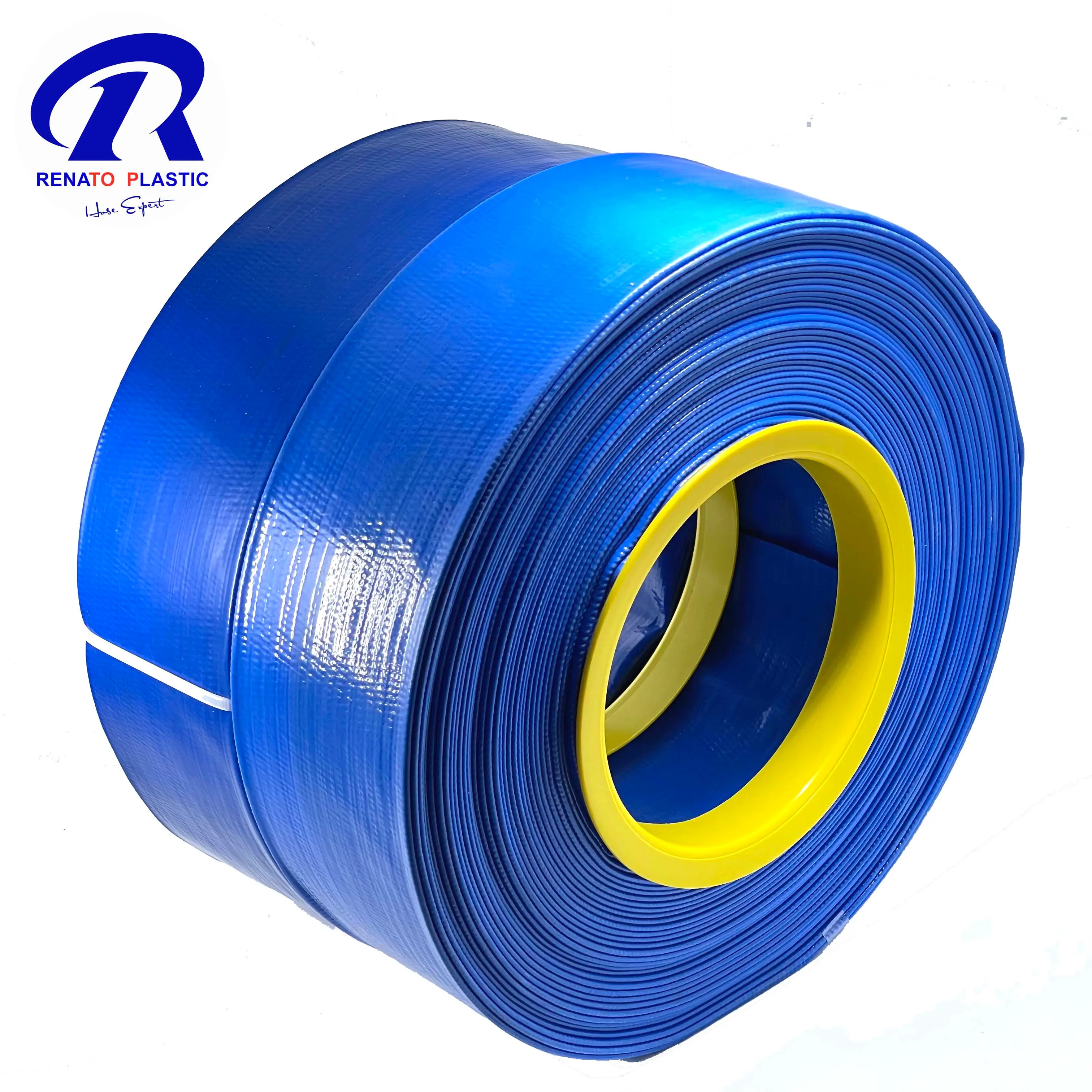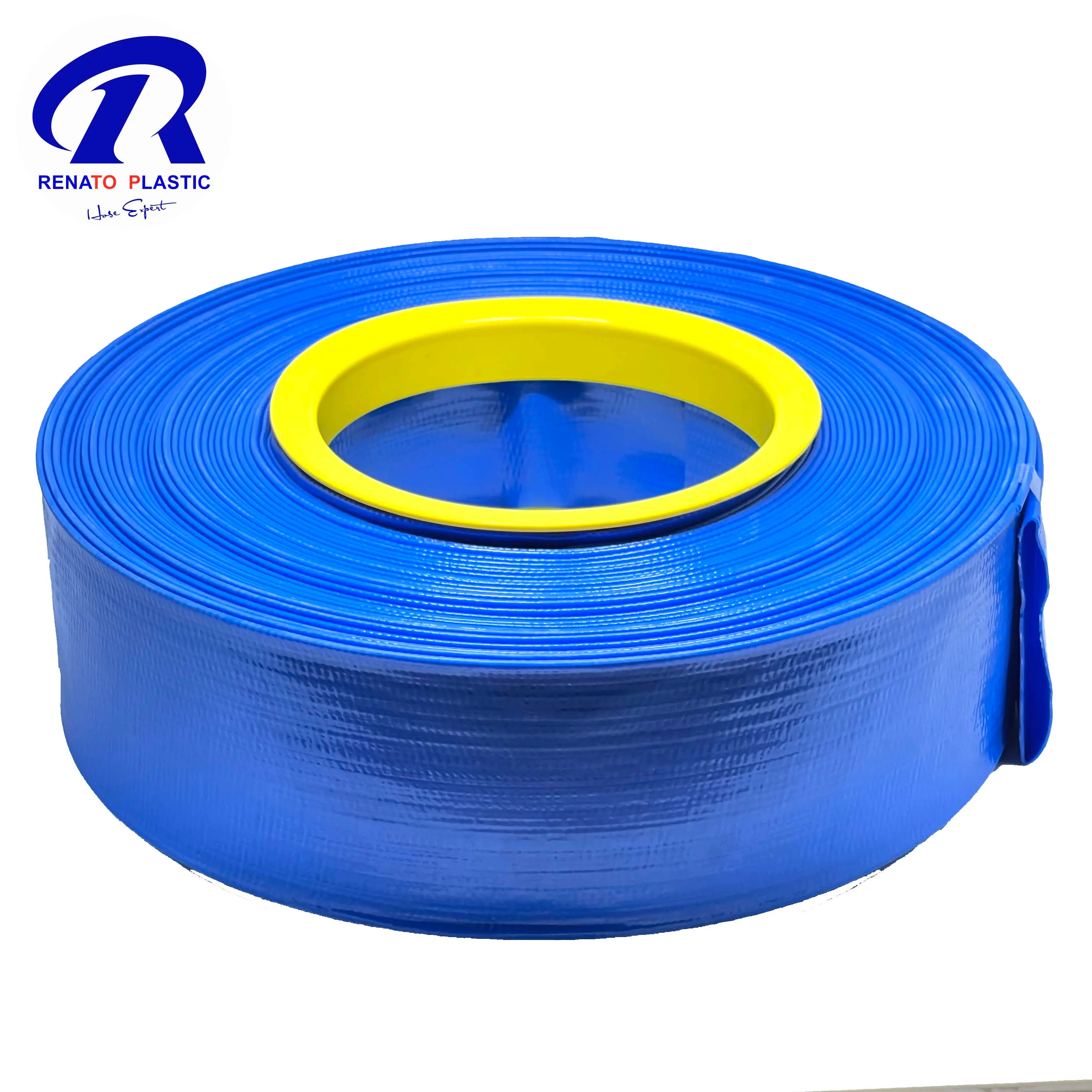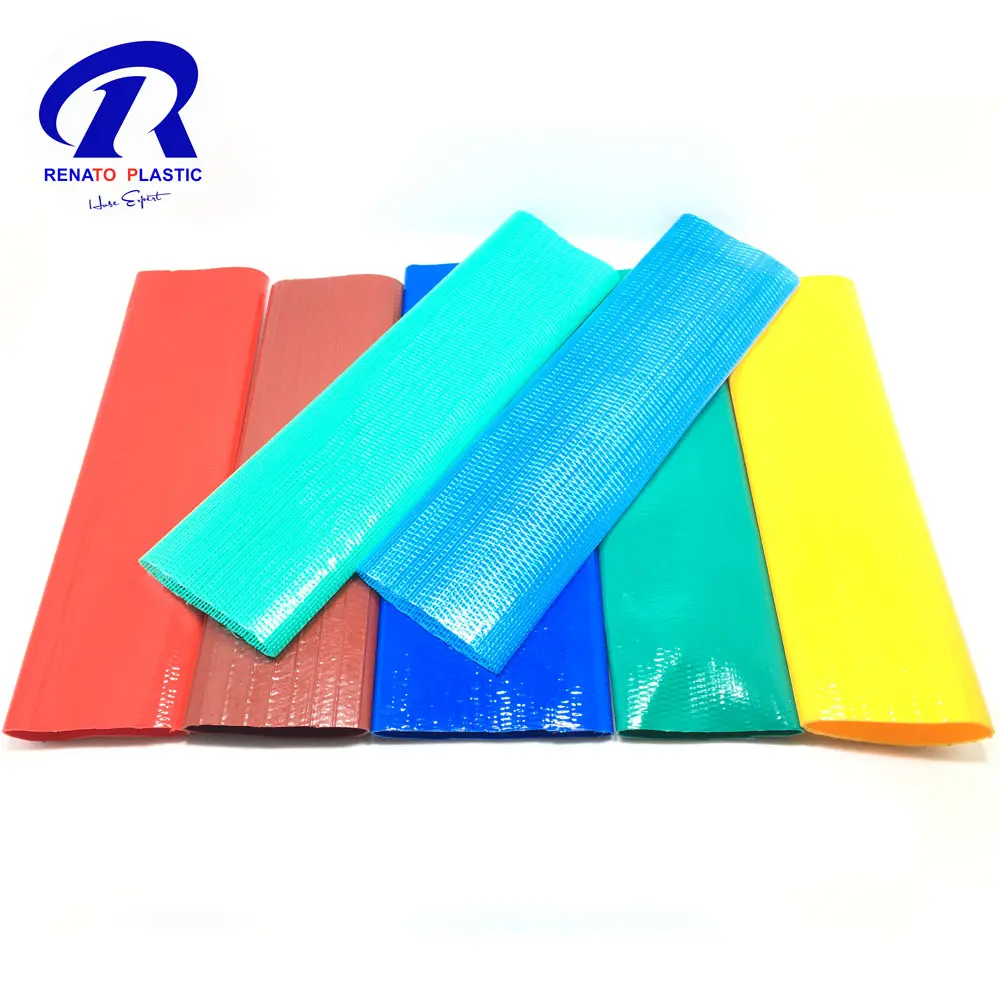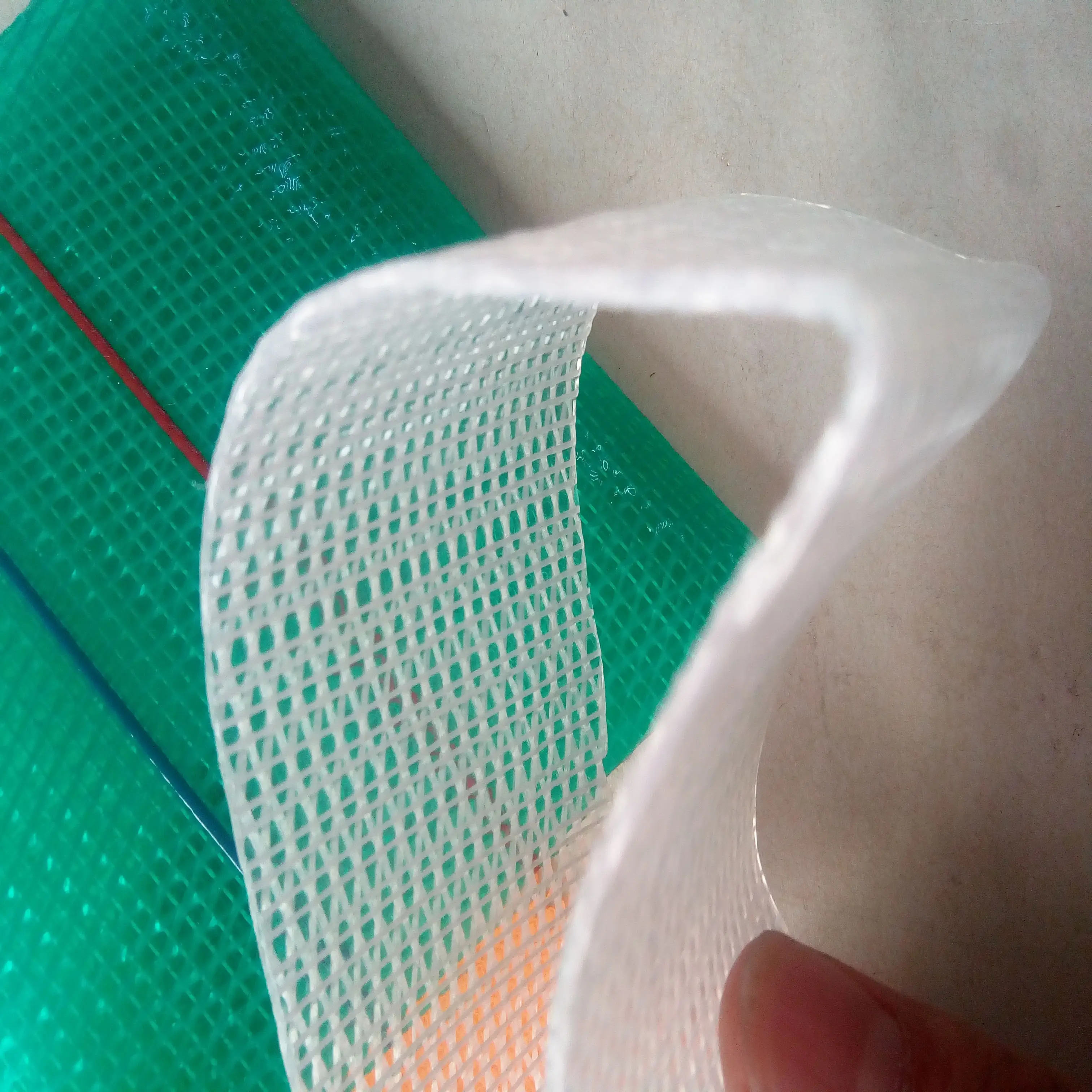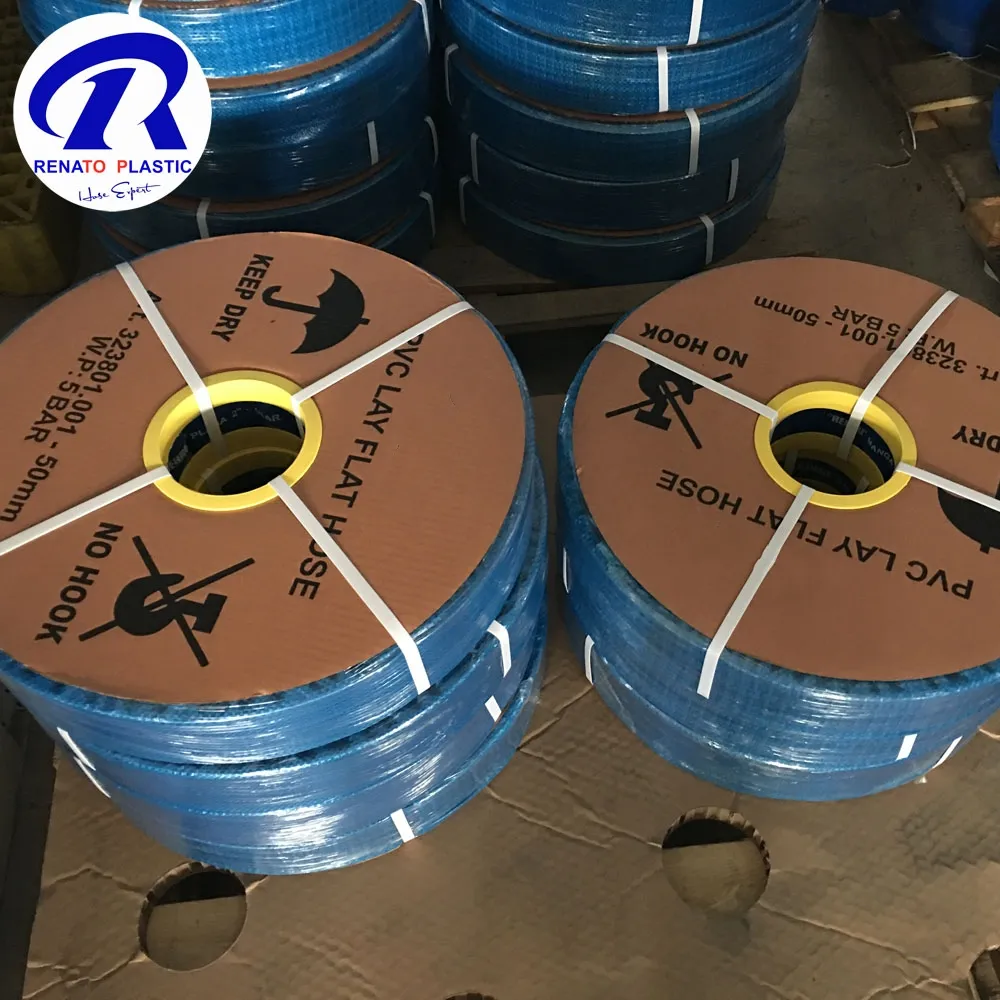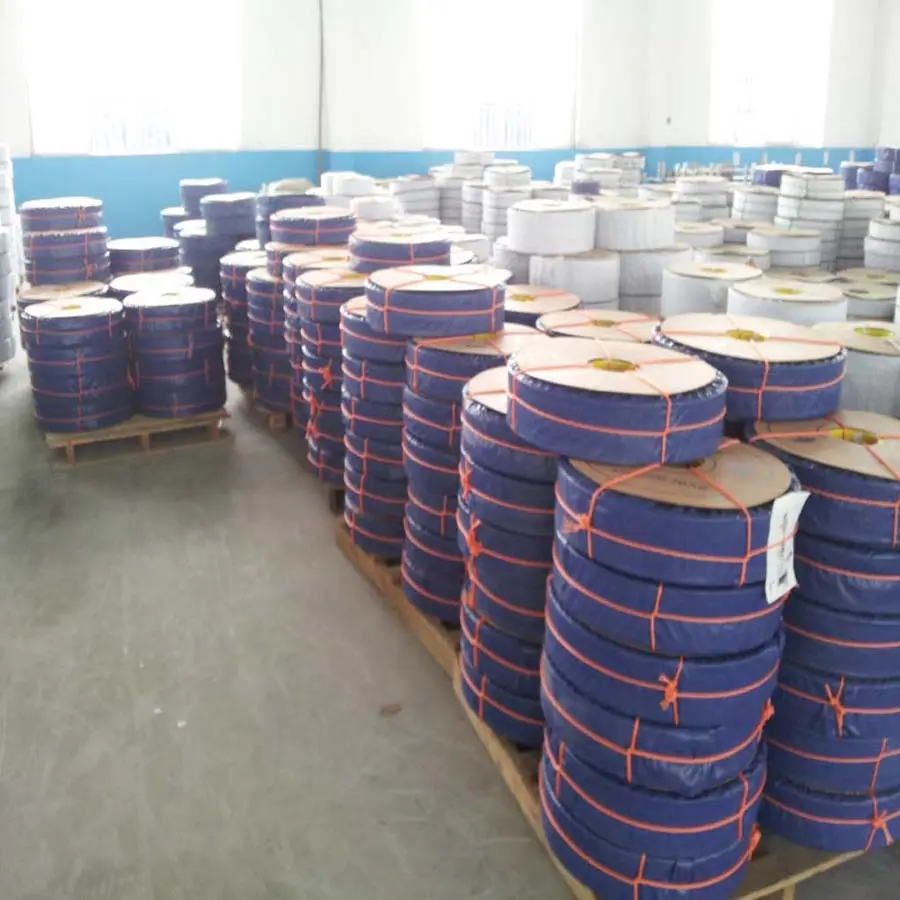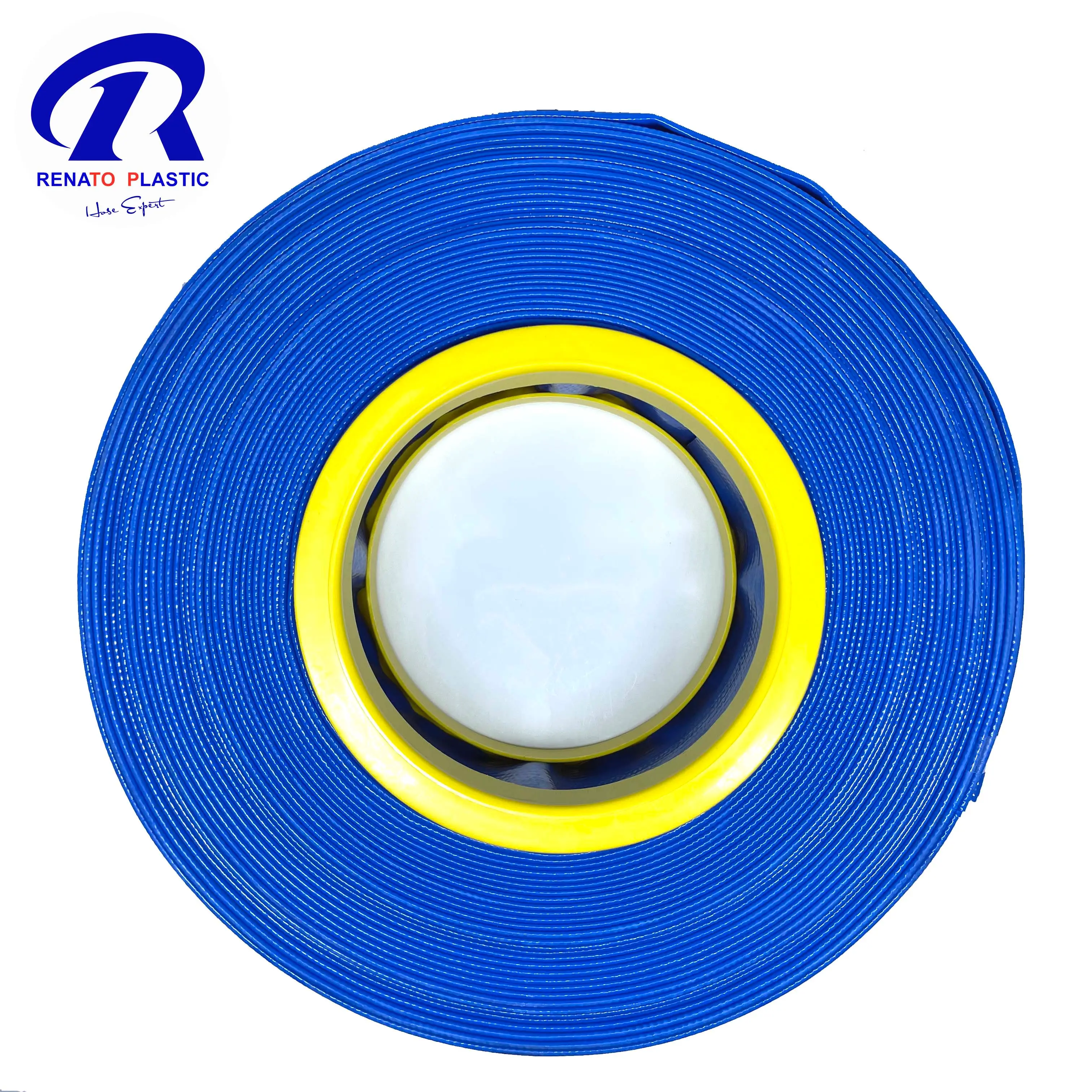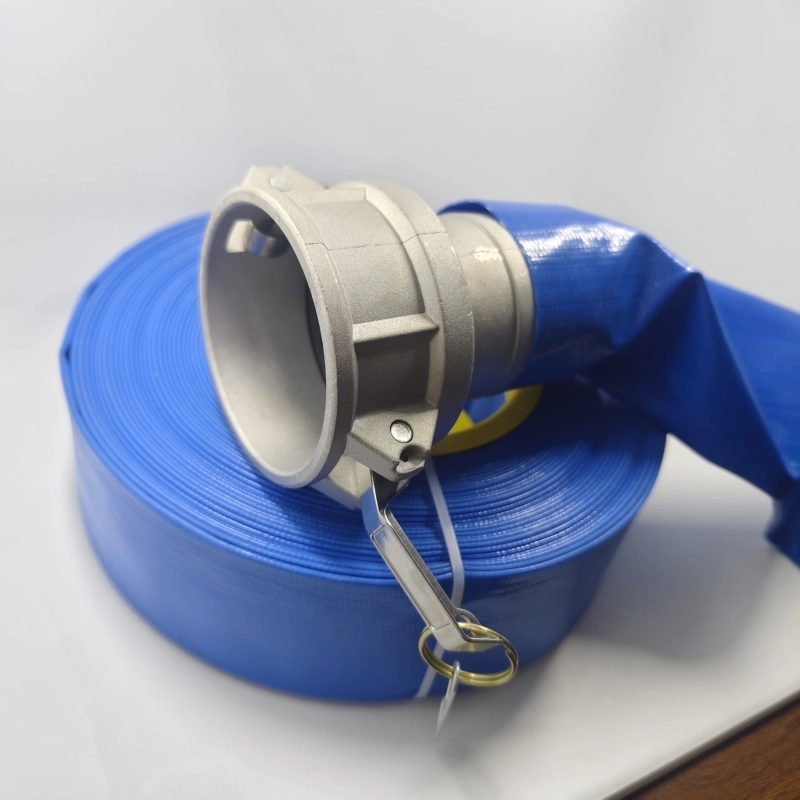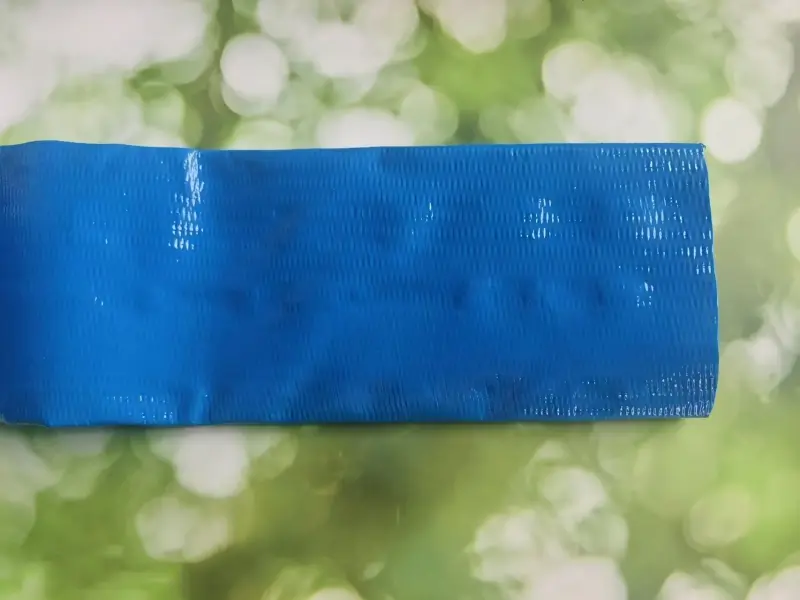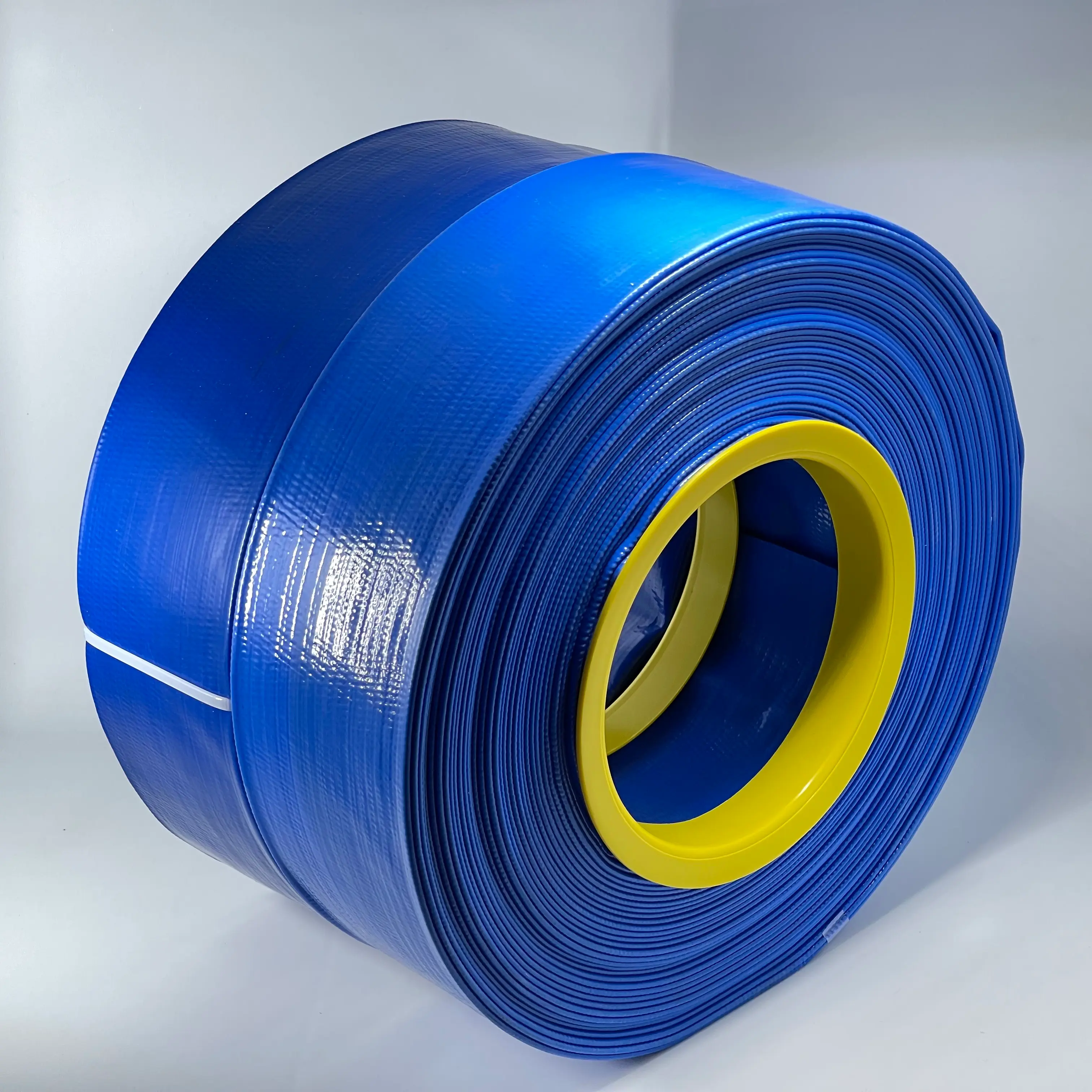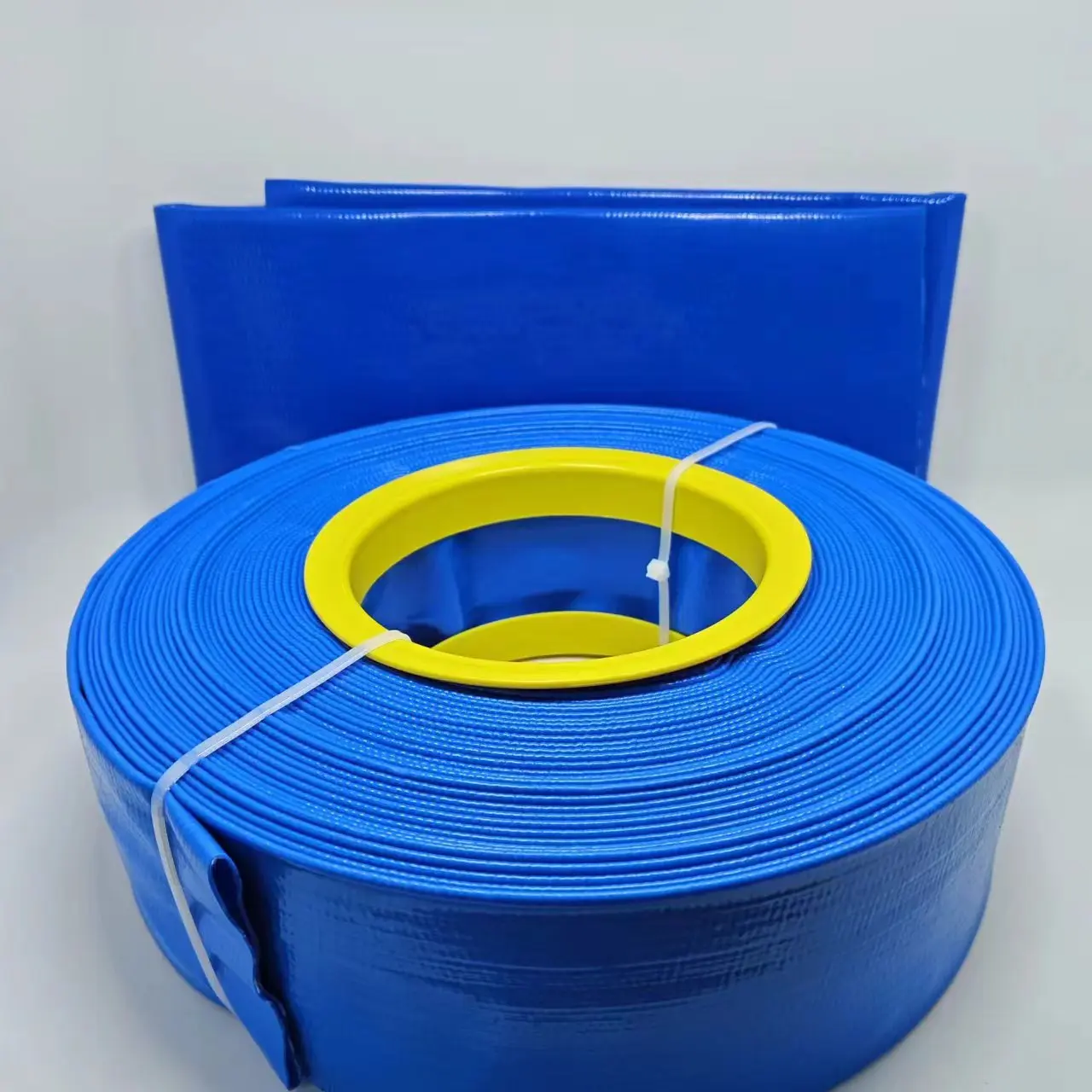In modern agriculture, efficient water management is crucial for optimizing crop yields and maintaining healthy fields. One essential tool in achieving this is the PVC layflat hose, specifically designed for irrigation and water discharge. This article will explore the key features, benefits, applications, and considerations when using PVC layflat hoses for agricultural purposes.
Medium Duty PVC Layflat Hose
Are you seeking reliable irrigation solutions for your farm that deliver consistent performance without breaking the bank? Look no further than Renato Hose's Medium Duty PVC Layflat Hose.
With over 15 years of expertise in manufacturing top-tier PVC hoses, Renato Hose has established itself as a trusted name in the industry. Our Medium Duty PVC Layflat Hose is designed to meet the rigorous demands of farm irrigation, offering unparalleled durability and efficiency.
Features of PVC Layflat Hose
High-Quality Material
Durable PVC Construction: Made from premium polyvinyl chloride (PVC), these hoses offer excellent durability and resistance to abrasion, chemicals, and UV radiation.
Reinforced with Polyester Yarn: The inclusion of high-tensile polyester yarn reinforcement ensures the hose can withstand high pressures and harsh agricultural conditions.
Flexible and Easy Handling
Layflat Design: The hose can be laid flat when not in use, making it easy to roll up, store, and transport. This design also prevents kinking and twisting during operation.
Lightweight: Despite its robust construction, the hose remains lightweight, facilitating easy handling and maneuvering around the farm.
Resistance to Harsh Conditions
Temperature Range: PVC layflat hoses are designed to perform effectively across a wide range of temperatures, making them suitable for different climates.
Chemical Resistance: These hoses are resistant to various agricultural chemicals, enhancing their durability and versatility in the field.
Benefits of Using PVC Layflat Hose in Agriculture
Efficient Water Distribution
Even Watering: The consistent water flow through PVC layflat hoses ensures even distribution, promoting healthy plant growth and optimizing crop yields.
Water-Saving: Using these hoses in conjunction with appropriate nozzles and irrigation systems can help control water flow and reduce water wastage.
Cost-Effective Solution
Durable and Long-Lasting: The robust construction and high-quality materials ensure a long service life, providing excellent value for money.
Low Maintenance: PVC layflat hoses require minimal maintenance, reducing overall operating costs.
Versatile Applications
Irrigation: Ideal for drip irrigation, sprinkler systems, and direct water delivery to crops.
Water Transfer: Suitable for transferring water from sources like rivers, lakes, or wells to fields.
Fertilizer and Chemical Distribution: Can be used for distributing liquid fertilizers and agricultural chemicals, ensuring precise and efficient application.
Applications in Agriculture
Field Irrigation
Row Crops: The flexibility and length options of PVC layflat hoses make them ideal for irrigating row crops, ensuring each plant receives adequate water.
Vegetable Gardens: These hoses can be easily maneuvered around vegetable plots, providing precise watering to ensure optimal growth.
Orchards and Vineyards
Drip Irrigation: PVC layflat hoses can be used in drip irrigation systems, delivering water directly to the root zone of trees and vines, promoting deep root growth and conserving water.
Greenhouses
Controlled Environment: In greenhouses, these hoses help maintain a controlled watering schedule, ensuring plants receive consistent moisture levels.
Livestock Watering
Reliable Water Supply: PVC layflat hoses can also be used to supply water to livestock troughs, ensuring animals have a constant and reliable water source.
Sepcification
| Inner Diameter | Thickness | Length/Roll | Weight | Working Pressure (23℃) | Volume | ||
| inch | mm | mm | m | kg/m | bar | psi | cbm |
| 1 | 25 | 1.3 | 100 | 0.15 | 5 | 75 | 0.017 |
| 1.5 | 100 | 0.165 | 7 | 105 | 0.019 | ||
| 1 1/4 | 32 | 1.2 | 100 | 0.17 | 5 | 75 | 0.020 |
| 1.3 | 100 | 0.19 | 7 | 105 | 0.022 | ||
| 1 1/2 | 38 | 1.25 | 100 | 0.19 | 5 | 75 | 0.024 |
| 1.45 | 100 | 0.23 | 7 | 105 | 0.026 | ||
| 2 | 51 | 1.1 | 100 | 0.22 | 4 | 60 | 0.034 |
| 1.3 | 100 | 0.3 | 6 | 90 | 0.036 | ||
| 2 1/2 | 64 | 1.2 | 100 | 0.32 | 4 | 60 | 0.046 |
| 1.7 | 100 | 0.43 | 6 | 90 | 0.048 | ||
| 3 | 76 | 1.1 | 100 | 0.35 | 4 | 60 | 0.060 |
| 1.5 | 100 | 0.5 | 6 | 90 | 0.062 | ||
| 4 | 102 | 1.2 | 100 | 0.55 | 4 | 60 | 0.083 |
| 2.3 | 100 | 0.8 | 6 | 90 | 0.085 | ||
| 5 | 127 | 1.35 | 100 | 0.75 | 4 | 60 | 0.109 |
| 2.3 | 100 | 1.08 | 6 | 90 | 0.111 | ||
| 6 | 153 | 1.35 | 100 | 0.9 | 4 | 60 | 0.141 |
| 2.4 | 100 | 1.6 | 6 | 90 | 0.143 | ||
| 8 | 203 | 2.2 | 100 | 1.785 | 3 | 45 | 0.185 |
| 2.7 | 100 | 2.02 | 4 | 60 | 0.187 | ||
| 10 | 255 | 2.7 | 50 | 2.6 | 3 | 45 | 0.170 |
| 12 | 307 | 2.7 | 50 | 3 | 2 | 30 | 0.225 |
The Role of PVC Layflat Hose for Agricultural Irrigati
on and Water Discharge
PVC Layflat Hose finds extensive use in both agricultural irrigation and industrial drainage.
In agricultural irrigation, the lightweight and flexible nature of PVC Layflat Hose makes it easy to lay and install, especially in complex farmland terrains. Its watertightness, low water resistance, and fast water output ensure efficient delivery of water to every corner of the field, providing sufficient moisture for crops. Additionally, the hose's resistance to aging, weathering, and UV rays ensures stable operation in outdoor environments for extended periods, reducing the need for frequent maintenance.
In industrial drainage, PVC Layflat Hose also plays a crucial role. Due to its good pressure resistance, it can withstand significant water pressure and is suitable for various industrial drainage systems. Whether it's drainage ditches, wastewater treatment pools, or other industrial drainage facilities, PVC Layflat Hose effectively discharges and transfers liquids. Simultaneously, its environmentally friendly and non-toxic properties align with the industrial sector's environmental requirements.
In summary, PVC Layflat Hose has significant applications in agricultural irrigation and industrial drainage, and its superior performance and broad applicability make it an indispensable transportation tool in these fields.
Considerations for Using PVC Layflat Hose
Choosing the Right Size and Length
Diameter: Select the appropriate diameter based on the required water flow rate and the size of the area to be irrigated.
Length: Choose a hose length that matches the distance from the water source to the farthest point in the field.
Proper Installation and Maintenance
Avoid Kinks and Twists: Ensure the hose is laid out flat and free from kinks or twists to maintain efficient water flow.
Regular Inspection: Periodically inspect the hose for any signs of wear or damage and repair or replace as necessary to prevent leaks.
Storage
Cool and Dry Storage: Store the hose in a cool, dry place away from direct sunlight to prolong its lifespan.
Proper Coiling: After use, coil the hose neatly to prevent damage and make it easier to deploy the next time.
Conclusion
PVC layflat hoses are an indispensable tool in modern agriculture, providing efficient, cost-effective, and versatile solutions for irrigation and water discharge. Their durability, flexibility, and ease of use make them an excellent choice for farmers looking to optimize their water management practices. By selecting the right hose and maintaining it properly, you can ensure a reliable water supply for your crops, promoting healthy growth and maximizing yields.
FAQ
1. What are the advantages of using PVC Layflat Hoses?
Flexibility: Easy to roll up and store when not in use.
Lightweight: Easier to handle and maneuver compared to rigid hoses.
Durable: Resistant to abrasion, corrosion, and chemicals.
Cost-Effective: Generally more affordable than other types of hoses.
Versatile: Suitable for various applications, including irrigation, water discharge, and pumping.
2. What are the typical applications of PVC Layflat Hoses?
Agriculture Irrigation: Efficiently delivers water to crops and fields.
Water Discharge: Used for draining water from ponds, pools, and flooded areas.
Construction Sites: Ideal for dewatering and transferring water on construction sites.
Firefighting: Can be used as temporary fire hoses for water delivery.
Industrial Applications: Suitable for transferring various fluids in industrial settings.
3. How do I choose the right PVC Layflat Hose for my needs?
Consider the following factors:
Diameter: Ensure the hose diameter matches your pump or irrigation system.
Length: Choose a length that covers the required distance.
Pressure Rating: Ensure the hose can handle the operating pressure of your system.
Temperature Range: Check if the hose can withstand the temperatures of the fluid and environment.
Reinforcement: Look for reinforced hoses for higher strength and durability.
4. How do I install and maintain a PVC Layflat Hose?
Installation:
Connect the hose to the pump or irrigation system using appropriate fittings.
Lay the hose flat and avoid sharp bends or kinks.
Secure the hose ends to prevent leaks.
Maintenance:
Regularly inspect the hose for signs of wear, damage, or leaks.
Clean the hose after use to prevent clogging and buildup.
Store the hose in a cool, dry place away from direct sunlight and chemicals.
5. What should I do if my PVC Layflat Hose gets damaged?
Minor Leaks: Small leaks can often be repaired using PVC-compatible adhesive or hose repair tape.
Major Damage: For significant tears or damage, it may be best to replace the hose.
Preventive Measures: Regularly inspect and maintain the hose to catch and address potential issues early.
6. Can PVC Layflat Hoses be used with other types of hoses and fittings?
Yes, PVC Layflat Hoses can be connected to other types of hoses and fittings using compatible adapters and connectors. Ensure that all components are compatible in terms of size, material, and pressure rating.
7. Are PVC Layflat Hoses environmentally friendly?
PVC Layflat Hoses are durable and can last for many years with proper care, reducing the need for frequent replacements. However, PVC is a plastic material, so it is essential to recycle or dispose of the hose responsibly at the end of its life to minimize environmental impact.
